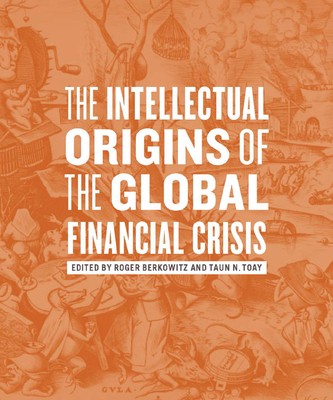
- We will send in 10–14 business days.
- Publisher: Fordham University Press
- ISBN-10: 0823249603
- ISBN-13: 9780823249602
- Format: 15.5 x 22.9 x 2 cm, hardcover
- Language: English
- SAVE -10% with code: EXTRA
The Intellectual Origins of the Global Financial Crisis (e-book) (used book) | bookbook.eu
Reviews
Description
Commentary on the financial crisis has offered technical analysis, political finger pointing, and myriad economic and political solutions. But rarely do these investigations reach beyond the economic and political causes of the crisis to
explore their underlying intellectual grounds. The essays in this volume delve deeper into the cultural and intellectual foundations, philosophical ideas, political traditions, and economic movements that underlie the greatest financial crisis in nearly a century. Moving beyond traditional economic and political science approaches, these essays engage thinkers from Hannah Arendt to Max Weber and Adam Smith to Michel Foucault.
EXTRA 10 % discount with code: EXTRA
The promotion ends in 15d.01:18:46
The discount code is valid when purchasing from 10 €. Discounts do not stack.
- Publisher: Fordham University Press
- ISBN-10: 0823249603
- ISBN-13: 9780823249602
- Format: 15.5 x 22.9 x 2 cm, hardcover
- Language: English English
Commentary on the financial crisis has offered technical analysis, political finger pointing, and myriad economic and political solutions. But rarely do these investigations reach beyond the economic and political causes of the crisis to
explore their underlying intellectual grounds. The essays in this volume delve deeper into the cultural and intellectual foundations, philosophical ideas, political traditions, and economic movements that underlie the greatest financial crisis in nearly a century. Moving beyond traditional economic and political science approaches, these essays engage thinkers from Hannah Arendt to Max Weber and Adam Smith to Michel Foucault.


Reviews